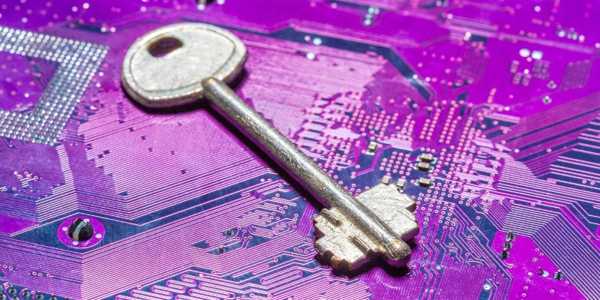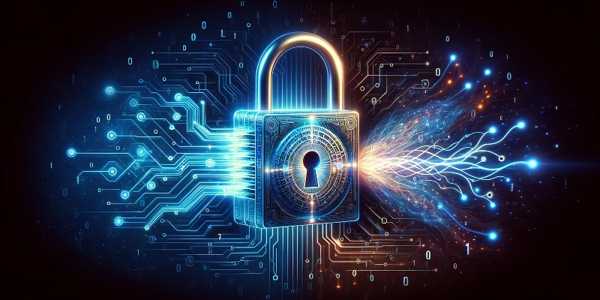- Electronics & Tech News
The Importance of Post-Quantum Cryptography
Imagine living in a world where your private emails, bank accounts, and online shopping history could be at risk because of a new super powerful computer. It isn't science fiction—it's a real possibility with quantum computers. Our current data security methods won't stand a chance against these machines. That's why we need post-quantum cryptography (PQC). Let's break post-quantum cryptography's significance down in a way that makes sense.
What Is Quantum Computing?
To understand PQC and securing data in the post-quantum era, you must first know a bit about quantum computing. So, let's break down some of the jargon first:
- Bits: The basic unit of information in traditional computers, representing a state of either 0 or 1.
- Qubits are the basic unit of information in quantum computers. They can represent 0, 1, or both simultaneously.
- Superposition is a property of qubits that allows them to simultaneously be in multiple states (0 and 1).
- Entanglement is a phenomenon in which two qubits become interconnected, so the state of one instantly influences the state of the other, regardless of distance.
Traditional computers, like the one you're using now, process information using bits. These bits are simple: they can be either a 0 or a 1. Think of them as light switches that can only be on or off.

Quantum computers use qubits, which are much more advanced. A qubit can be a 0, a 1, or both simultaneously. This is called superposition. Imagine a light switch that can simultaneously be on and off, giving quantum computers a massive advantage in processing power.
Quantum computers also have another trick up their sleeves: entanglement. When qubits become entangled, the state of one qubit is directly related to another, even if they're far apart. This means they can instantly share information, allowing quantum computers to solve complex problems faster than traditional computers.
In simple terms, quantum computers can handle more data and perform calculations at speeds that current computers can't match. That
t makes them incredibly powerful, but it also threatens the encryption methods we rely on to keep our data safe.
Why Should We Care?
The significance of post-quantum cryptography is clear. Many encryption methods we use today, like RSA and ECC (Elliptic Curve Cryptography), are based on problems that are very difficult for traditional computers to solve. These problems involve factoring large numbers or solving complex mathematical equations.
Quantum computers can solve these problems much faster using unique algorithms like Shor's algorithm. If a quantum computer can run Shor's algorithm efficiently, it can break the encryption that protects our data. All the methods we currently use to keep our information safe could be helpful.
Enter Post-Quantum Cryptography
To keep our data secure, we need to develop new cryptographic methods that even quantum computers can't break. This is what post-quantum cryptography (PQC) is all about. PQC involves creating algorithms that can withstand the power of quantum computing but still run on the computers we use today.
There are several approaches to PQC, each with its strengths and weaknesses when it comes to securing data post-quantum era:
- Lattice-Based Cryptography: Uses mathematical structures called lattices. These are considered tough nuts for quantum computers to crack.
- Hash-Based Cryptography: Relies on secure hash functions even against quantum attacks.
- Code-based cryptography uses error-correcting codes, which have been around for a while and are known to be resilient.
- Multivariate Polynomial Cryptography: Involves solving systems of multivariate polynomial equations, which quantum computers find challenging.
- Supersingular Elliptic Curve Isogeny Cryptography: This one is quite a mouthful but boils down to using challenging problems related to elliptic curves that quantum computers can't quickly solve.
Why Post-Quantum Cryptography Matters
Post-quantum cryptography (PQC) addresses the imminent threat of quantum computers to our current cryptographic systems. Traditional encryption methods, which protect our data today, may not hold up against the processing power of quantum computers. Here's why PQC matters and how you can get future-proof encryption post-quantum:
- Future-Proofing Security: As quantum computers become more advanced, we must ensure our data stays safe. PQC helps protect our information in the long run.
- Compatibility: PQC algorithms are designed to work with existing systems, making the transition smoother.
- Versatility: PQC isn't just for high-tech industries. It's essential for anyone who values data security, from banks and hospitals to personal home networks.
The Challenges
Adopting PQC is going to take a lot of work. Here are a few challenges when you want to future-proof encryption post-quantum:
- Performance Issues: Some post-quantum algorithms require more computing power and memory, which can slow things down.
- Standardization: We need universal standards to ensure everyone is on the same page. Organizations like NIST (National Institute of Standards and Technology) are working on this, but it takes time.
- Awareness and Adoption: Getting everyone to understand and adopt PQC is a big task. It requires cooperation across industries and governments.
What's Being Done?
There's already a lot of work happening in this area. NIST has been running a competition to identify the best PQC algorithms. They're evaluating proposals and working towards creating standards that everyone can follow.
In addition to NIST, other organizations and researchers worldwide are also contributing to the development of PQC. This collective effort is crucial for ensuring robust solutions are ready before quantum computers become mainstream.
Practical Steps You Can Take
While most of us aren't directly involved in developing these algorithms, there are steps we can take to prepare:
- Stay Informed: Keep up with developments in PQC to make informed decisions about data security.
- Update Systems Regularly: Ensure your software and systems are up-to-date. Vendors will likely integrate PQC solutions into their products as they become available.
- Use Strong Passwords: Strong, unique passwords offer significant protection against many attacks while PQC becomes widespread.

Conclusion
Quantum computing represents a significant technological leap but also introduces new security challenges. Post-quantum cryptography is crucial in preparing for this future, ensuring our data remains secure against even the most powerful quantum attacks. Understanding and adopting PQC can protect our information against future threats.
The goal is to prepare, not panic. With the proper knowledge and tools, we can ensure our digital world remains secure, regardless of technological advancements. This is not just a technological issue; it affects everyone. Staying informed and prepared will ensure data security in the quantum era.





